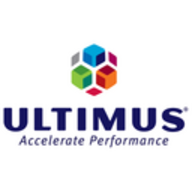

Appian and Ultimus Adaptive Business Process Management products compete in business process management solutions. Appian holds an advantage in terms of support and cost-effectiveness, while Ultimus attracts feature-driven buyers due to its powerful functionalities.
Features: Appian features high-speed application development, process automation capabilities, and a low-code platform for non-developers. Ultimus provides sophisticated adaptive process management, advanced integration options, and agility for businesses.
Ease of Deployment and Customer Service: Appian is recognized for its streamlined deployment, quick setup, and responsive customer service. Ultimus offers robust customization during deployment, requiring more technical expertise, though customer support is strong.
Pricing and ROI: Appian offers competitive pricing with favorable ROI due to efficient deployment and implementation speed. Ultimus may have higher initial costs but provides substantial ROI with its advanced features for businesses prioritizing feature complexity.
| Product | Market Share (%) |
|---|---|
| Appian | 3.5% |
| Ultimus Adaptive Business Process Management | 0.7% |
| Other | 95.8% |

| Company Size | Count |
|---|---|
| Small Business | 20 |
| Midsize Enterprise | 9 |
| Large Enterprise | 44 |
Appian is a unified low-code platform and solution used by businesses to build enterprise applications and workflows. This product adapts to the needs of clients and the technologies they are already using to combine their data in a single workflow and maximize resources. The platform has four main components through which it transforms the work process for companies of various sizes. They are:
Appian is utilized across a diverse set of industries, including automotive and manufacturing, energy and utilities, education, financial services, telecom and media, transportation, retail, insurance, healthcare, and life sciences. The most frequent use cases of Appian are customer journey, governance, risk and compliance, operational efficiency, supply chain, distributed order management, and environmental, social, and governance (ESG) management.
Appian Features
Appian has various features that allow users to create solutions for their businesses. These features can be separated into a few groups according to function, including automation, low-code application development, and integrations and data. Some of the most frequently used features of Appian include:
Appian Benefits
The benefits of using Appian include:
Reviews from Real Users
A practice leader - digital process automation at a computer software company values Appian highly because the product is easy to develop, low-code, and has a good user interface.
Alan G., an advisory board member at Codecon VR, Appian offers a clear application life cycle, easy to learn documentation, and comes with a fundamentals course.
The Ultimus Adaptive Business Process Management (BPM) Suite is a seamlessly integrated Business Process Management Software solution to manage the complete lifecycle of key business processes.
We monitor all Business Process Management (BPM) reviews to prevent fraudulent reviews and keep review quality high. We do not post reviews by company employees or direct competitors. We validate each review for authenticity via cross-reference with LinkedIn, and personal follow-up with the reviewer when necessary.